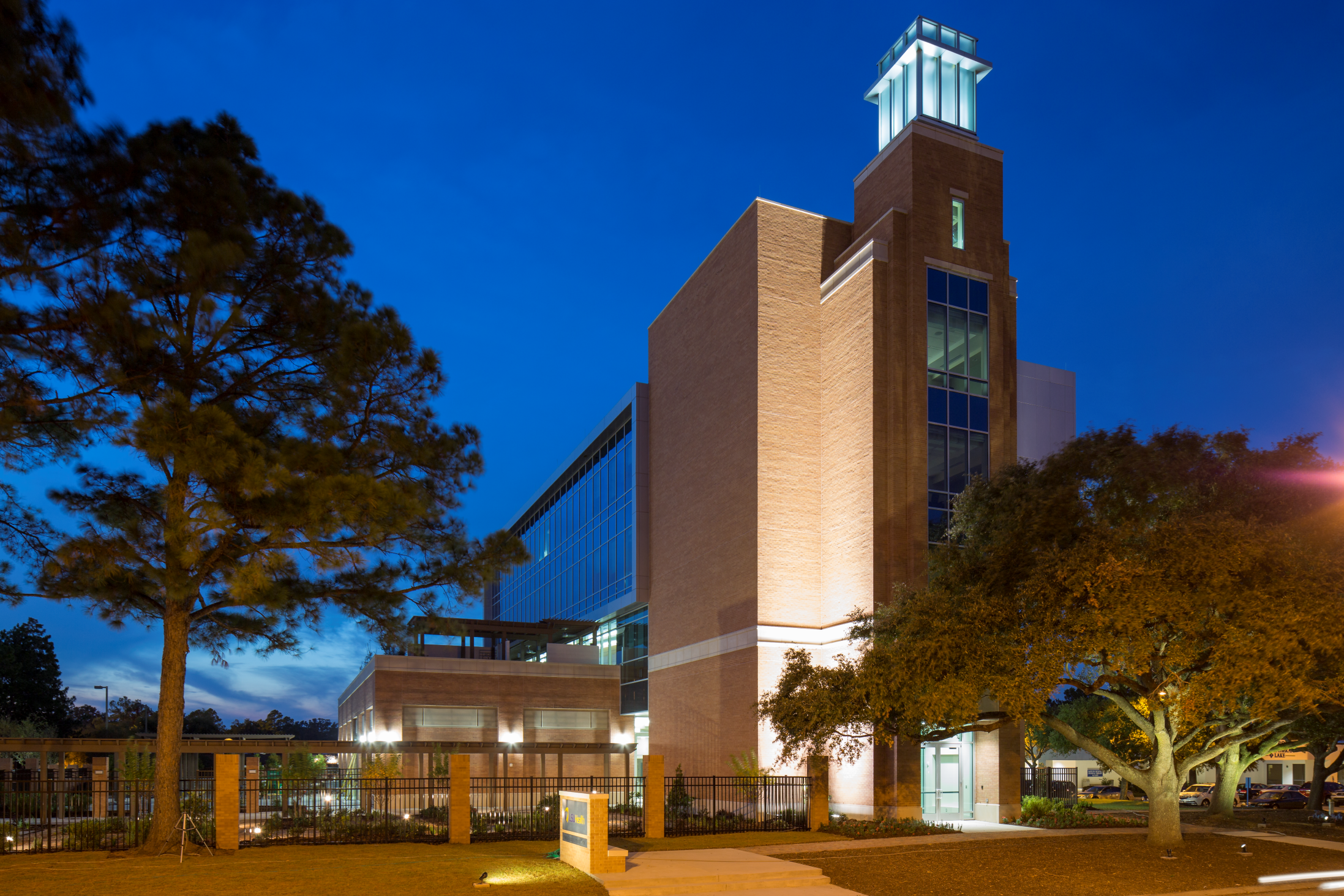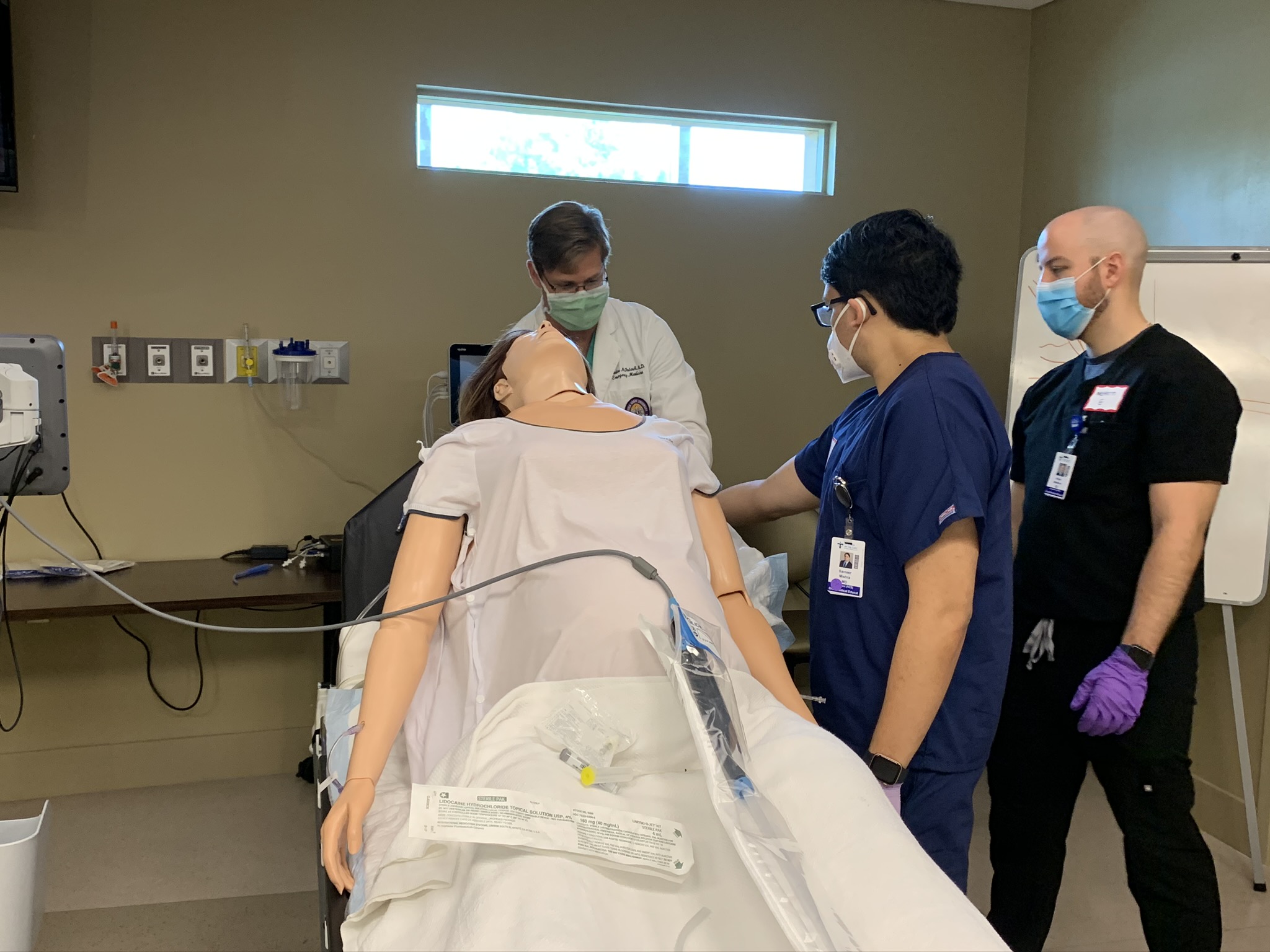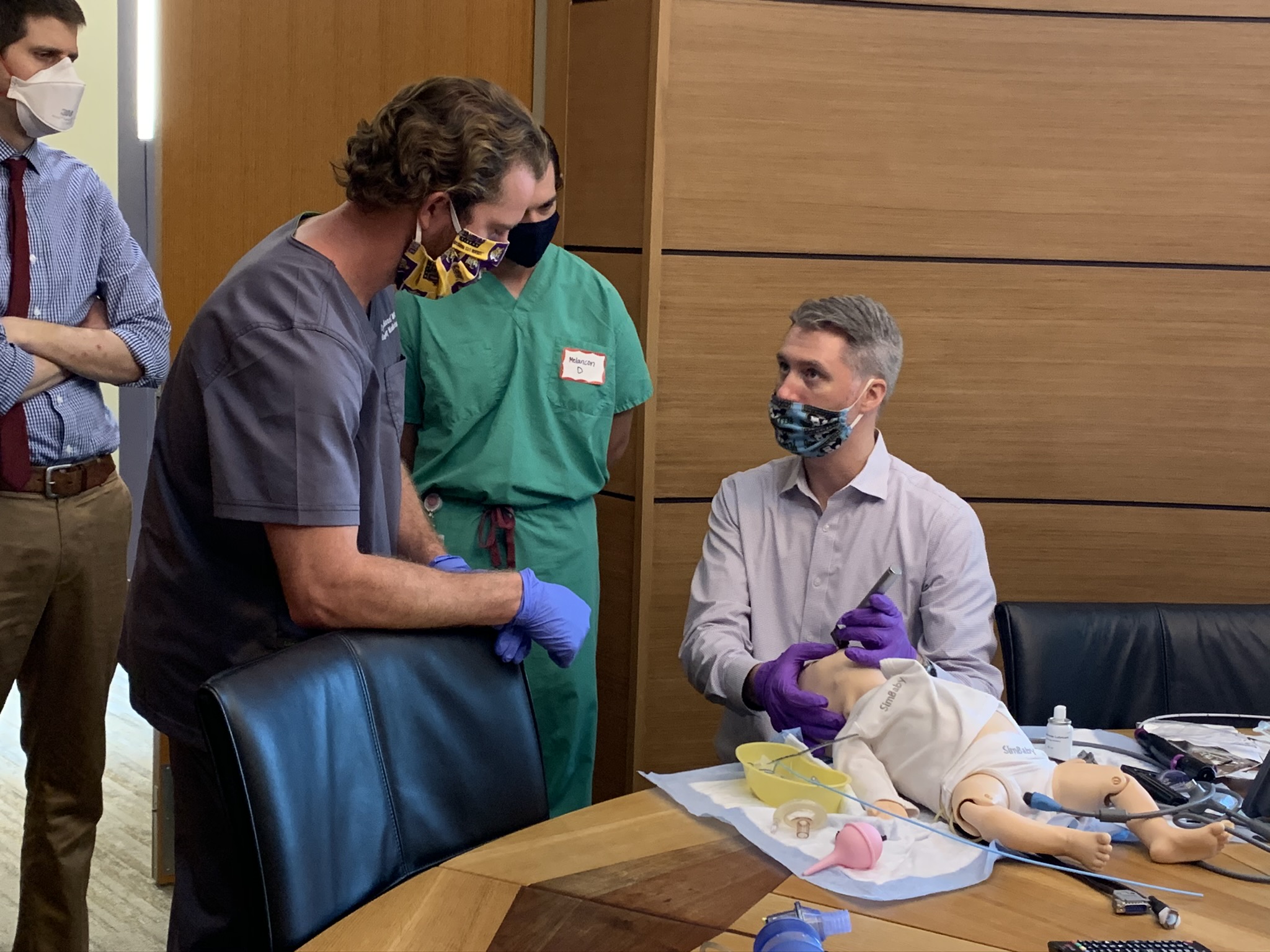Spotlight On: Baton Rouge Regional Campus
Reprinted with permission from LSU Health Sciences Center Foundation

Kevin D. Reed, M.D., F.C.C.P., Associate Dean, Baton Rouge Regional Campus, LSU Health New Orleans - School of Medicine
Welcome to the LSU Health School of Medicine Baton Rouge Regional Campus!
As many of you know, Baton Rouge has a long history in both graduate and undergraduate medical education. This was provided primarily at Earl K. Long Hospital until its closure in 2013. In 2013, we began our partnerships with Our Lady of the Lake Regional Medical Center, Baton Rouge General Medical Center and Woman’s Hospital to be primary training sites for our Baton Rouge-based programs, Emergency Medicine, Internal Medicine, Obstetrics/Gynecology, Pediatrics, and Psychiatry. In addition, various New Orleans-based programs receive vital training here in Baton Rouge.
Our Medical Education Innovation Center was completed shortly thereafter, allowing for a state-of-the art educational space to enhance training. These events have strengthened the education and training in Baton Rouge. Medical students can complete all required clinical rotations at our campus during their 3rd and 4th year, and residents continue to expand their experience.
We are excited about our future growth and to share what our campus has to offer.
EMERGENCY MEDICINE RESIDENCY PROGRAM
The curriculum is designed to expose residents to the full range of topics, experiences, technical procedures, and concepts relevant to emergency medicine that will prepare them to meet our residency’s educational goals. It’s divided into clinical (on- and off-service rotations), didactic (conference, lecture, small groups, simulation), and literature-based curricula (required readings and scholarly activities).


Our Lady of the Lake Regional Medical Center (OLOLRMC), Our Lady of the Lake Children’s Hospital (OLOLCH), Baton Rouge General Medical Center (BRG), and Woman’s Hospital.
PSYCHIATRY RESIDENCY PROGRAM
The psychiatry residency was developed as a result of the LSU-OLOL partnership, and we took our first class of residents in 2012. The growth in psychiatric services and our footprint on the campus has been exponential! Our graduates have gone on to be successful on their boards and to practice in various settings across the country. The Baton Rouge community has benefited from retaining many of our graduates, helping to meet the mental health needs.
We currently have 29 residents, and over 35 full- and part-time faculty members, and our training focuses on educationally driven learning opportunities throughout OLOL and our community. We have been able to bring evidence-based treatments previously not widely available in the Baton Rouge area to the community, such as medication-assisted treatment and cognitive behavioral therapy for opiate use disorder, esketamine and now transcranial magnetic stimulation for treatment-resistant depression. Through our partnership with the LSU Department of Psychology, we also have a suicide treatment program and serve as one of three hubs nationally for the program.
OBSTETRICS & GYNECOLOGY RESIDENCY PROGRAM
Our training in obstetrics and gynecology at LSU-Baton Rouge is based at Woman’s Hospital, with two rotations at Our Lady of the Lake Regional Medical Center, and one rotation 3rd and 4th year at Baton Rouge General Hospital.
Obstetrics and gynecology offers many opportunities to the practicing clinician due to the multiple sub-specialties included in this field. The majority of our graduates have chosen to pursue general OB/GYN positions in private practices. Rural areas are always looking for specialists in this field. Residents are also supported in their applications to fellowships in urogynecology, reproductive endocrinology and infertility, oncology, maternal fetal medicine, minimally invasive surgery, and family planning. All of the recognized fellowships require 3–4 years of additional training. Academic medicine is also an available option for those physicians wanting to educate doctors.
Each year we receive 400+ applicants and interview about 50 to fill our four available House Officer I positions.
INTERNAL MEDICINE RESIDENCY PROGRAM
Our program nurtures the development of critical thought in a manner that moves beyond the redundant acquisition and retention of information. We emphasize the understanding of disease from a pathophysiologic point of view. This facilitates the understanding of disease processes as entities with characteristics that are both solitary and universal in their origins and consequences.
Our program encourages the application of evidence-based medicine to enhance critical thinking, to provide a forum for evaluation of current medical philosophy and practice, and to stimulate interest in the foundation of the art of medicine.
We provide a relaxed educational atmosphere, understanding that in the promotion of the learning process there must be opportunity for humor, casual interactions, self-reflection, and constructive criticism. We are candid in our expectations of our residents, which are reasonable and receptive to personal circumstances and characteristics.
We are centered around resident education allowing for hands-on experience. Under the guidance of experienced and respected faculty physicians, this provides house staff a foundation in internal medicine and subspecialty care.
OLOL PEDIATRIC MEDICINE RESIDENCY PROGRAM
We meet with our residents to help guide their decisions along their individualized learning experience. Residents can choose from a long list of subspecialty rotations and electives in a time frame that aligns with their personal learning needs and career goals. Whether it is choosing more time attending deliveries at Woman’s Hospital (one of the largest delivery hospitals in the country), doing a maternity/paternity elective, completing an advocacy project during a global health elective, working at a rural FQHC clinic, or taking a deeper dive into medical education–our program boasts many unique elective opportunities and prides itself on working with each resident to accommodate their needs and goals.
